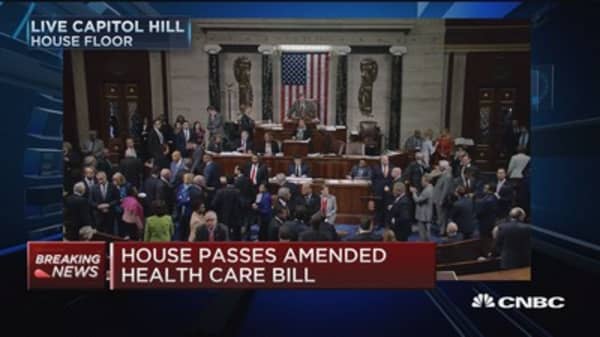One of the key provisions in the health care overhaul bill narrowly approved by House Republicans Thursday would grant broad powers to the states to decide how insurance coverage is managed and paid for.
If the bill survives intact in the Senate, that means your future access to health care may depend heavily on where you live.
After more than seven years of coverage under the Affordable Care Act, the GOP-controlled House voted to repeal parts of the law in a mostly party-line vote, 217 to 213.
The measure now goes to the Senate, which is expected make further changes.





